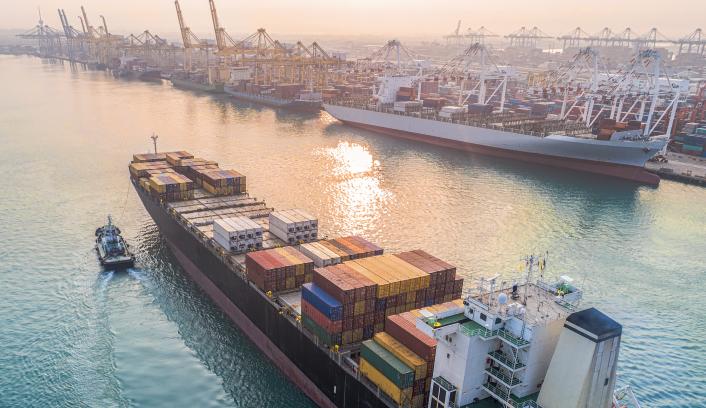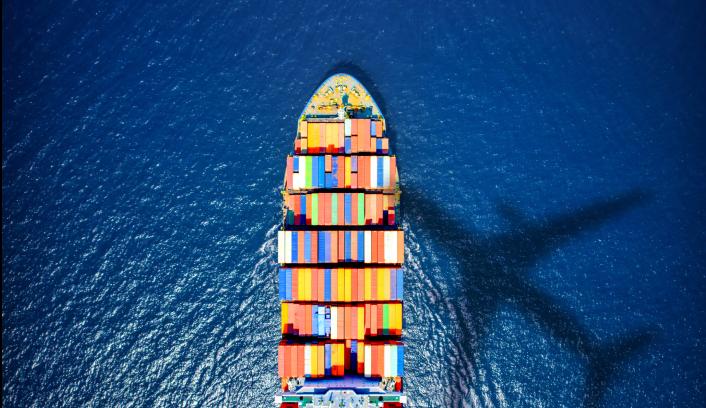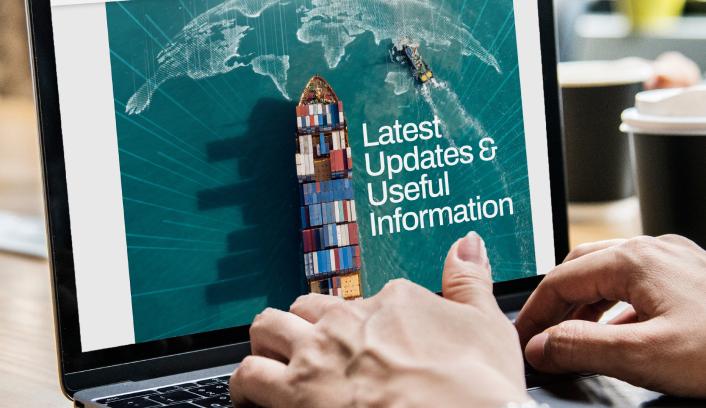
Check out resources and insights to
help your business navigate
global trade with confidence.
Navigating global trade
The global trade environment continues to evolve, shaped by shifting geopolitical priorities, supply chain realignments, and renewed focus on economic security. Recent US tariff policies have introduced both uncertainties and opportunities for businesses engaged in international commerce.
Whether you are exporting goods or managing cross-border partnerships, staying informed and adaptable is more important than ever.
Here are some resources to help you navigate the evolving trade environment.
Frequently Asked Questions
US Baseline Tariff Implementation and Scope
-
When did the US tariffs on imports from Singapore take effect?
The US 10% baseline tariff on imports from Singapore came into effect on 5 April 2025. The same 10% baseline tariff was applied to imports from 124 other countries on the same day.
-
What goods are exempt from the US’ 10% baseline tariff?
Please refer to Annex II of the Executive Order and the Presidential Memoranda.
Examples of imports that the US has exempted from the 10% baseline tariff include:
- Pharmaceuticals, semiconductors, energy and energy goods, critical minerals such as copper, some information technology products such as personal computers and smartphones.
- Low-value shipments valued under US$800 (De Minimis exemption).
- Goods with at least 20% US-originating components by value, which are eligible for partial tariff exemption (the 10% baseline tariff applies only to the non-US content portion, while the US content portion is exempt from the tariff).
Additionally, some goods are exempt from the 10% baseline tariff as they are subject to other US tariffs:
- Steel and aluminium goods (including derivatives): 25% tariffs under Section 232 of the Trade Expansion Act of 1962. For the full list of steel goods, refer to the Federal Register notice here. For the full list of aluminium goods, refer to the Federal Register notice here.
- Automobiles and automobile parts: 25% tariff under Section 232 of the Trade Expansion Act of 1962. For the full list of automobiles and automobile parts, refer to the Federal Register notice here.
-
Are there other FTAs that Singapore exporters can tap for an “exemption” from the 10% baseline tariff?
No, Singapore does not have any other FTAs with the US beyond the USSFTA. Please note that the USSFTA does not exempt goods that are intended to be imported into the US from the 10% baseline tariff.
-
Will the 10% baseline tariff be reduced to 0%?
Currently, the 10% baseline tariff will remain in place with no further reductions.
-
What does the recent US Court of International Trade (CIT)’s ruling on the tariffs imposed under the International Emergency Economic Powers Act (IEEPA) mean for exporters from Singapore?
Although the CIT’s 28 May 2025 ruling gave the US government 10 days to stop the 10% baseline tariff that Singapore is subject to (as well as other tariffs levied under the IEEPA), the US Court of Appeals for the Federal Circuit subsequently stayed the implementation of the CIT ruling while it considers the US government’s appeal.
The 10% baseline tariff on US imports from Singapore therefore remains in effect until further notice. There are no changes to tariff procedures or requirements for Singapore exporters at this time.
US Transhipment and Import Requirements
-
What will be subject to the 40% US tariff on "transhipped" goods?
The US Customs and Border Protection (CBP) has informed Singapore Customs that imports into the US,
- which are intentionally shipped through a third country outside of the country of origin; and
- for which the country of origin is incorrectly declared on the US CBP import declaration to avoid payment of additional/ higher fees/ duties/ taxes/ charges,
will be subject to an additional 40% tariff.
Please refer to the Executive Order “Further Modifying the Reciprocal Tariff Rates” of 31 July 2025.
-
How does the US Customs and Border Protection (CBP) determine whether the goods have been transhipped?
The US CBP has informed Singapore Customs that it uses a combination of legal authority, advanced systems, and operational procedures to ensure all duties owed to the US are paid. The US CBP enforces US trade laws through audits, targeting, and frontline import reviews.
-
Will there be any process changes or information required to be submitted by traders as a result of the transhipment tariffs?
The US CBP has informed Singapore Customs that its import processes remain unchanged.
Please refer to the Singapore Customs website for the latest circulars and information on transhipment procedures.
Proving Origin Status and Compliance Considerations
-
How do I apply for an ordinary/non-preferential certificate of origin (COO) to certify the Singapore Origin of my goods, if I intend to export to the US without the US-Singapore FTA (USSFTA)?
Please note that Singapore Customs does not require you to obtain an ordinary/non-preferential COO for exports to the US. For exporting goods to the US, you will need to comply with Singapore's export requirements, including obtaining the relevant Customs export permits and checking if the goods you intend to export are controlled goods subject to restrictions by Competent Authorities (CAs) in Singapore. Thereafter, you may follow the permit application procedures via TradeNet.
If you wish to obtain documentation to attest to the origin of your goods as Singapore Origin, you may apply for an ordinary/ non-preferential COO through Singapore Customs, or any of the five authorised organisations* through their respective websites. For detailed application procedures and requirements, please refer to Singapore Customs’ website.
* The five authorised organisations are: a) Singapore Chinese Chamber of Commerce and Industry; b) Singapore Indian Chamber of Commerce and Industry; c) Singapore International Chamber of Commerce; d) Singapore Malay Chamber of Commerce and Industry; and e) Singapore Manufacturing Federation.
-
How do I achieve ‘Singapore origin’ status for my goods under the USSFTA?
To qualify as Singapore originating under the USSFTA, the final product must meet the PSRO specified under the USSFTA. Each product, identified by its HS code, has specific origin qualification requirements outlined in the Agreement. Use the Tariff Finder Database or refer to Annex-3A of the USSFTA”s Product Specific Rules of Origin to identify the specific criteria.
Products that have only undergone minimal processing in Singapore will NOT qualify for Singapore origin.
-
What activities constitute as minimal processing in Singapore?
Minimal processing activities are operations considered too simple to qualify as substantial transformation and therefore cannot obtain originating status. Such simple operations include the affixing of marks or labels, simple mixing of products, breaking up consignments, or simple packing operations etc.
-
What are the new or additional procedures required for Singapore exporters to comply with the new US tariffs?
The US Customs and Border Protection (CBP) has informed Singapore Customs that the current process for filing a US Customs Declaration (via the US Automated and Commercial Environment) remains unchanged at this juncture.
-
Can companies producing goods in other countries export these goods to Singapore first, and then from Singapore to the US, to qualify for the 10% baseline tariff?
Just because goods are exported to the US from Singapore (e.g. shipped from Singapore to the US) does not make them of Singapore Origin.
For the US to consider an import to be of Singapore Origin and therefore eligible for the 10% baseline tariff, it must meet the US’ country of origin requirements.
According to the US Code of Federal Regulations Title 19 (Customs Duties) Part 134.1 (Definitions), “country of origin” means the “country of manufacture, production, or growth of any article of foreign origin entering the United States.”
When a good does not come entirely from a single country, the origin of the good is determined using the “substantial transformation” criterion. This means that the good underwent a fundamental change in form, appearance, nature, or character. This fundamental change normally occurs as result of processing or manufacturing in the country claiming origin.
Minimal processing or assembly operations do not usually result in a substantial transformation. This applies to all non-textile goods. For more information, including the rules for textile goods, companies may refer to the US Customs and Border Protection’s (CBP) Informed Compliance Publication, “What Every Member of the Trade Community Should Know About: Rules of Origin”.
-
How will the US determine if a good is of Singapore Origin to qualify for the 10% baseline tariff? How is Regional Value Content (RVC) determined, especially for operations like final assembly?
According to the US Code of Federal Regulations Title 19 (Customs Duties) Part 134.1 (Definitions), “country of origin” means the “country of manufacture, production, or growth of any article of foreign origin entering the United States.”
When a good does not come entirely from a single country, the origin of the good is determined using the “substantial transformation” criterion. This means that the good underwent a fundamental change in form, appearance, nature, or character. This fundamental change normally occurs as result of processing or manufacturing in the country claiming origin.
Minimal processing or assembly operations do not usually result in a substantial transformation. This applies to all non-textile goods. For more information, including the rules for textile goods, companies may refer to the US Customs and Border Protection’s (CBP) Informed Compliance Publication, “What Every Member of the Trade Community Should Know About: Rules of Origin”.
You may also wish to:
- Consult the US CBP Customs Rulings Online Search System (CROSS) for past US CBP rulings on goods similar to those intended for export to the US.
- Apply to the US CBP for an advance ruling to determine your good’s country of origin before it is exported to the US. For more information, click here.
- Consider working with trade compliance experts and/or seeking appropriate legal advice to ensure compliance.
Interaction between Tariffs and US-Singapore FTA (USSFTA)
-
Are goods eligible for preferential tariff treatment under the USSFTA exempted from the 10% baseline tariff on imports from Singapore?
The 10% baseline tariff and USSFTA preferential tariff rates operate independently of each other.
Goods that: a) are eligible for preferential tariff treatment under the USSFTA; and b) which have not been exempted by the US, will only be subject to the 10% baseline tariff.
Goods that: a) are eligible for preferential tariff treatment under the USSFTA; and b) which have been specifically exempted by the US, will continue to enjoy the USSFTA preferential tariff rate of 0%.
The interaction between the 10% baseline tariff and the USSFTA is summarised in the flowchart here.
-
How do I qualify for preferential tariff treatment under the USSFTA for my exports to the US?
For goods to be exported to the US under the USSFTA, the good must first fulfil the origin requirements to be eligible. You may wish to refer to details on the USSFTA to see if your good meets these requirements.
After you have ensured that the goods being exported to the US meet USSFTA requirements including the product specific rules of origin:
- Have your US importer file customs declarations through the Automated Commercial Environment (ACE). The US Customs and Border Protection (CBP) has informed Singapore Customs that the current process for the US importer filing a US Customs Declaration remains unchanged at this juncture.
- Your importer’s broker must enter the appropriate Special Program Indicator (SPI) in ACE to claim preferential tariff treatment under the USSFTA.
- Be prepared to provide supporting documentation (e.g., certificate of origin or any other relevant information) if requested by the US CBP.
- You may also wish to apply to the US CBP for an advance ruling to determine whether the good qualifies as “Singapore-originating” for the purposes of the USSFTA, before it is exported to the US. For more information, visit the US CBP’s website on rulings.
- The US CBP may conduct verification of origin checks by requesting information directly from manufacturers or exporters, or through the US importer. Singapore Customs may also facilitate visits to Singapore-based manufacturers or exporters, if requested by US CBP, for this purpose.
-
Can I export goods to the US under the USSFTA’s Integrated Sourcing Initiative (ISI) to be exempt from the 10% baseline tariff?
No, the ISI does not provide preferential tariff treatment or exempt goods exported to the US from tariffs.
The ISI reduces importers’ paperwork burden and cuts processing costs for certain information technology goods and medical devices listed in Annex 3B of the USSFTA.
The US requires that ISI goods imported into the US be marked with their “true country of origin”. According to the US Code of Federal Regulations Title 19 (Customs Duties) Part 134.1 (Definitions), “country of origin” means the “country of manufacture, production, or growth of any article of foreign origin entering the United States.”
When a good does not come entirely from a single country, the origin of the good is determined using the “substantial transformation” criterion. This means that the good underwent a fundamental change in form, appearance, nature, or character. This fundamental change normally occurs as result of processing or manufacturing in the country claiming origin.
Minimal processing or assembly operations do not usually result in a substantial transformation. This applies to all non-textile goods. For more information, including the rules for textiles, you may refer to the US Customs and Border Protection’s (CBP) Informed Compliance Publication, “What Every Member of the Trade Community Should Know About: Rules of Origin”.
You may also wish to apply to the US CBP for an advance ruling to determine that the good qualifies for the ISI and/or to determine its “true country of origin” and the applicable tariff, before it is exported to the US. For more information, visit the US CBP’s website on rulings.
The US CBP may conduct verification of origin checks by requesting information directly from manufacturers or exporters, or through the US importer. Singapore Customs may also facilitate visits to Singapore-based manufacturers or exporters, if requested by US CBP, for this purpose.
Tariff Lookup and Updates
-
How can I find or evaluate the tariffs on my products?
Access the Tariff Finder to identify country-specific HS codes, and search for the latest information on tariff and non-tariff trade measures across more than 160 destinations. A corporate account will need to be set up to access the tool.
-
Is the Tariff Finder updated with the latest tariff information?
Yes, the Tariff Finder is updated continuously to reflect current trade measures. An updated timestamp will be indicated for each search result.
-
What types of tariff information are available through the Tariff Finder tool?
The Tariff Finder covers a range of information including FTA preferential rates, MFN rates, reciprocal and baseline tariff rates, and more.
Supply Chain Considerations
-
Does the transfer of Malaysia manufactured goods through the Johor-Singapore Special Economic Zone (JS-SEZ) affect eligibility for ‘Singapore origin’ status?
The Malaysia manufactured good will still be considered as Malaysia origin since the last country of substantial transformation of the good was in Malaysia.
-
Does conducting testing and quality control checks on the good in Singapore or the JS-SEZ confer ‘Singapore origin” status, if the good was manufactured in Malaysia?
No, the Malaysia manufactured good will still be considered as Malaysia origin since the last country of substantial transformation of the good was in Malaysia.
The Singapore Government expects all businesses operating in Singapore to take into account other countries’ regulations, including import requirements, where relevant to their international business activities. These activities should be conducted transparently. We do not condone businesses deliberately using their association with Singapore to circumvent tariffs.
Singapore takes firm and decisive action against companies and individuals that violate our laws. We are committed to maintaining the integrity of our business environment.
Above FAQs updated as of 18 August 2025.
Have further enquiries?
-
For tariff-related matters, reach out to the Singapore Business Federation’s Centre for the Future of Trade and Investment team at fta@sbf.org.sg.
-
For all other business enquiries, connect with our SME Centre business advisors.







